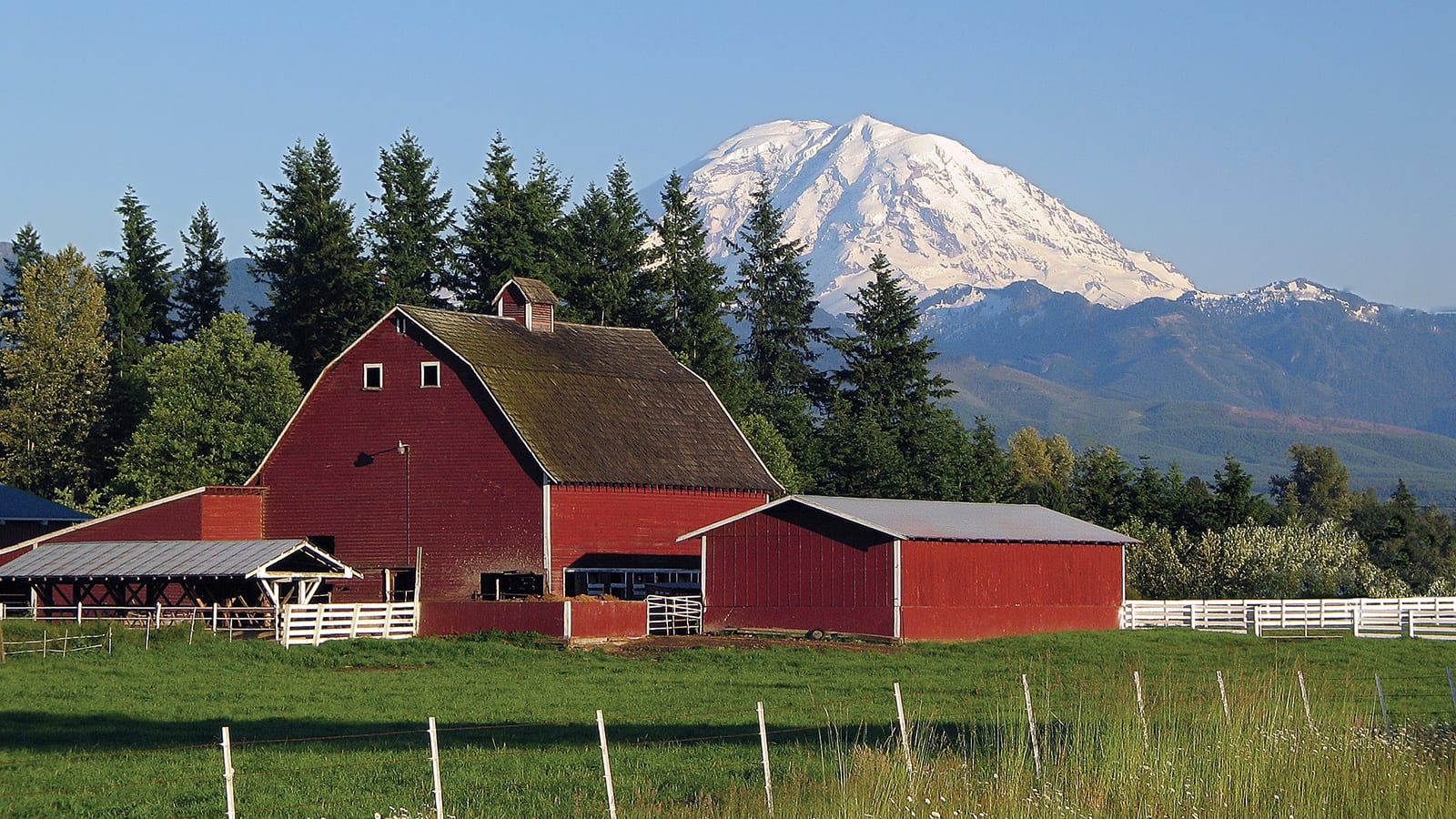Washington’s Good Food Agenda
by Arianna Muirow, Ph.D.
This article was originally published in December 2017

Washington is taking a leadership role in building a better food system across the state. It all began in 2012 with an Executive Order from then-Governor Gregoire directing state agencies to examine food policies and food issues across Washington. Out of that order, the Washington State Food System Roundtable was formed.
The Roundtable included representatives from state agencies, agriculture, food retail (including PCC), tribes, local food policy councils, and organizations representing fair labor, anti-hunger, economic development and public health. The group met together for five years to discuss strategies to create a more just, equitable and resilient food system in Washington.
Vic Coleman, director of the Childhood Obesity Prevention Coalition and co-chair of the Roundtable, explained, “In our state, when folks talked about ‘food systems’ work, I tended to interrupt rudely and say loudly that we actually didn’t have a food ‘system’ but rather a very loose hodge-podge of players, sectors, programs, funders and policies that are not constructed with the idea of an overarching and truly functional food system. While there have been numerous examples of various component parts of the food system valiantly stepping out of their silos to work with other food system sectors, there was not an overriding commitment, document or easily identifiable organization making food system work a front-burner issue.”
This summer 2017 the Roundtable released the Food Policy Prospectus, a 25-year vision for Washington’s food system and a road map for how to achieve that change. The Prospectus is robust, including 219 different strategies on multiple sectors. Says Coleman, “I hope and believe that the Prospectus can be a catalyst to real food system thinking and action across Washington state.”
Though the Roundtable has now disbanded, the nonprofit advocacy organization Food Action (formerly the Washington Sustainable Food and Farming Network) has taken on stewardship of the Roundtable’s Prospectus, seeking to bring the first of these recommended strategies to life with its Good Food Agenda.
Five initiatives
The Good Food Agenda includes five initiatives from the Roundtable’s road map for change housed under four pillars: food justice, food equity, public health and environmental sustainability.
Food justice demands the recognition of respect, equal opportunities and fair treatment for all those who are part of our food system, where a diversity of cultures is both appreciated and supported. Food Action’s first food justice initiative is to “Protect food system and farmworkers from harmful effects of work-related exposures.”
Pesticide exposure is a major health risk for farmworkers and is linked to negative long-term health outcomes, including cancer, neurological disorders, hormonal and reproductive health problems, and birth defects. Farmworkers are the most vulnerable to health impacts from pesticides because they often are not given information about the substances they’re working with, and many do not speak up about working conditions due to concerns about employment status or deportation.
Food equity advocates for the rights of all people to access healthy and culturally appropriate food, and for the elimination of food insecurity and hunger. One in five children in Washington state today live in a household struggling with food access and one in five Washington residents rely on food banks to fulfill their food needs. Food Action is striving to “Advance policies that fight hunger and improve nutrition for those who can afford it least.”
Public health promotes the health of farmers, food workers and consumers by addressing the health impacts of food production, processing, packaging, labeling, distribution, marketing, consumption and disposal. The dominant global industrial food system is heavily dependent on toxic chemicals and synthetic inputs that pose threats to our health, especially children. Food Action will be advocating against chemical inputs in our food that harm public health.
Environmental sustainability fosters a sustainable, resilient environment where our land, soil, air, water and biodiversity are conserved, protected and restored, and our food and nutrition needs are met without compromising future generations. Food Action is pursuing two initiatives under the umbrella of environmental sustainability: “Promoting agriculture and food distribution practices that reduce carbon emissions and/or sequester carbon” and “Preventing the introduction of genetically engineered salmon from Washington state.”
Ultimately, Food Action’s goals are to help people think about the broader system where food-related issues are present.
Russ Lehman, executive director for Food Action, explains that “A sustainable food system is, by definition, one that need not rely on artificial components. The corporate drive to increase profits at the expense of serious threats to the environment, public health and existing food sources is not only unsustainable, it is also unethical.”
It’s also a great way to promote action toward interconnected system change.
To learn more or get involved visit foodaction.com.
